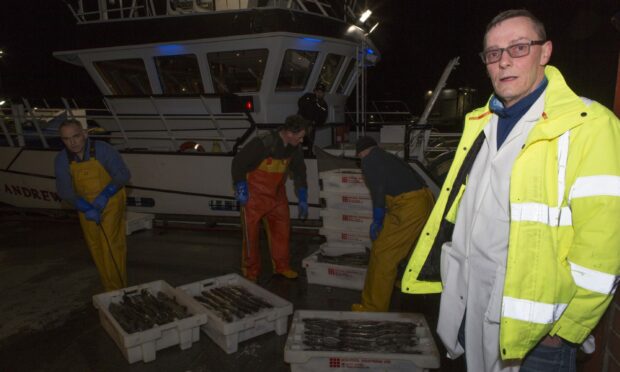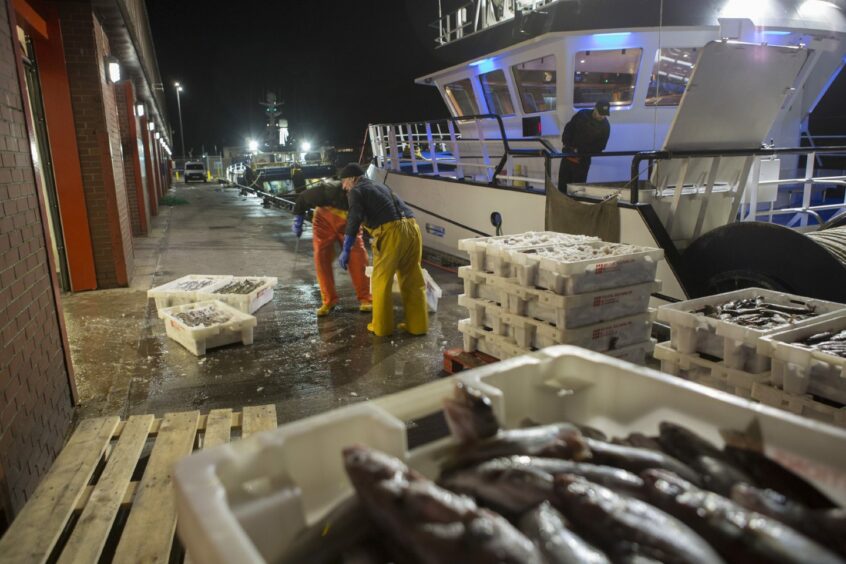Each week, we ask small businesses key questions. Here we speak to William Thomson, managing director of Scrabster fish merchant Thomson International.
How and why did you start in business?
After leaving school I started my career as a fish salesman in Kinlochbervie, where I grew up.
I continued as a fish salesman in Aberdeen when completing an MBA at Aberdeen University.
The fishing industry is in my blood, and in 1996 I moved to Scrabster to run a local fish-selling company.
I was always ambitious, with a desire to be my own boss, so in 1999 I set up my own business in Scrabster – Thomson International (Fish Sales) – focusing on buying and selling fish on the local market.
How did you get to where you are today?
By being 100% committed and working crazy hours seven days a week in the early days.
Also by focusing on providing top quality service 24/7, and always endeavouring to meet our customers’ needs, whatever they may be, at a consistently high level.
I expanded the business into Faroe, importing whole fish and fillets weekly and then selling it, mainly into France.
We also had Faroese vessels landing into Scrabster, with their catches distributed throughout Europe.
We were sending about 12 trucks a week into France when the Faroese government passed legislation that prevented landings in the UK.
So today, after more than 25 years in the industry, my aims are simple.
They are to focus on buying fish at Scrabster market and exploiting our market knowledge to the benefit of our customers – fish processors and retailers in both Scotland and England.
Who helped you?
My dad, Kenneth, was a big inspiration to me as he set up Kinlochbervie Fish Selling Company in 1972 with Sir Ian Wood taking on the role of managing director.
A lot of my childhood was spent around the harbour, watching fishing vessels land into the market and then catches being sold at auction.
I started my company in partnership with Iain and Bob Bannerman, who were successful businessmen in Tain.
They persuaded me to get going and were very supportive in the early days.
My accountant, Stuart Walker, has always been available for business advice when needed, and the Federation of Small Businesses helps keep me keep up to date with the latest business information.
What is your biggest mistake?
Mistakes will always happen in a busy trading environment, but I believe that as long as you do your best there is no point in crying over the past.
What is your greatest achievement?
Expanding the business internationally and building up strong relationships with Faroese companies, which complemented our Scrabster business. We invested in both fishing vessels and fish processing in Faroe.
If you were in power in government, what would you change?
I’d reduce the red-tape burden that holds so many businesses back. Exporting fish into Europe has now become very burdensome, due to Brexit and all the additional paperwork required.
What do you still hope to achieve?
I’m happy where I am, but I do want to see coastal ports like Scrabster continue to grow and be successful – they are vital to the health of Scotland’s coastal communities.
Scrabster harbour has continually invested in infrastructure to attract business.
Running a business is all about people and relationships, which is why people working together is so important in a small place like Scrabster.
What do you do to relax?
I live a pretty quiet life, walking my dog and enjoying the beautiful Caithness countryside, even on cold wintry days.
I love living beside the sea and enjoy the view from my window overlooking Thurso Bay. There’s always something new to see, depending on the weather.
What are you currently reading, listening to or glued to on TV?
I’m reading the works of John Newton, who wrote Amazing Grace and was instrumental in abolishing slavery throughout the British Empire.
What do you waste your money on?
There is too much poverty in the world to waste money. I’d rather donate it to a worthwhile Christian charity.
How would your friends describe you?
I hope loyal, hard-working and truthful, even when they don’t like it. I certainly don’t suffer fools gladly.
What would your enemies say about you?
I never think about it. The world is full of hatred and I’d rather concentrate on trying to help my neighbour and people in real need.
What do you drive and dream of driving?
I drive a VW Amarok and am very happy with it. Material possessions or wealth alone never bring true happiness.
Gadget-loving Stephen Barron is printing his way to success
Fraser MacLean proud to ‘keep things moving’ at M&H Carriers

